interviewed by Carl Slaughter
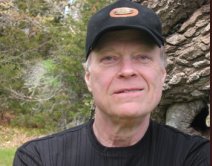 Tor executive editor and nuclear terrorism expert Robert Gleason answers questions about his novels The Wrath of God and End of Days.
Tor executive editor and nuclear terrorism expert Robert Gleason answers questions about his novels The Wrath of God and End of Days.
CARL SLAUGHTER: Is End of Days a prequel to The Wrath of God? A direct prequel or an indirect prequel?
ROBERT GLEASON: WRATH OF GOD takes place 50 years after END OF DAYS. Kate Magruder, the heroine in END OF DAYS, is an 80+ old woman, and the Citadel is the only bastion of technology left in the world. A modern incarnation of Tamerlane the Earthshaker is coming down the rubble of the Alaskan Highway leaving mountains and towers of human skulls in his wake. As his consort, the Lady Legion, once tells Tamerlane: “We have made a skull of the earth, around whose throat we string not gems but dead worlds.” The Citadel is ill-equipped to confront such a warlord, so Katherine Magruder’s son, Richard,who was trained by Los Alamos scientists and an Apache shaman,opens a hole in Time. Together, they bring back George S. Patton, Stonewall Jackson, Amelia Earhart and a triceratops to combat Tamerlane in the Southwestern desert in the Battle of the Apocalypse. When Rosie O’Donnell heard that plot description, she said: “Smoke a lotta crack, don’t you, Bob?”
One of the main characters has apocalyptic visions. What’s the premise for this? Genetic? Paranormal? Pharmaceutical?
Kate Magruder’s grandmother was a legendary real-life female Apache war shaman named Lozen. Kate inherits Lozen’s visionary abilities.
Why Russia as a setup rather than India, Pakistan, or Iran? Why Islamic extremists rather than extremist religionists in Israel or America or secular nationalists in China. Or Britain, which has both nuclear weapons and a growing population of Muslims, as well as a recent history of terrorist attacks?
Russia has the most fissile explosive of any foreign power, and it’s easier to steal. If you run a nuclear forensics test on the fallout after the nuclear attacks, it will come back as Russian-made nuclear bomb-fuel. Also my rogue state wants to destroy the developed world, and Russia has enough arms to do it. So does the US. No other nations capable of hitting the world with thousands of nukes, except the US and Russia. If my rogue state wants to get the developed world to wipe itself out, it needs both Russia and US fully on board. Why did I choose Muslim terrorists? Well, actually I chose a Middle Eastern nuclear rogue state, which employs real soldiers and sailors. I fictionalized the name of the state but was thinking of a combination of Saudi Arabia and Pakistan, which are close, almost inseparable allies in reality. The Saudis leadership is extremely wealthy and has a long history of funding terrorism. They even funded Pakistan’s nuclear program, still fund it, and Pakistan,among the world’s rogue states–has the most ambitious nuclear weapons program. To make END OF DAYS nuclear scenario work, you’d need a rogue state with those kinds of capabilities. (I took my scenario from Herman Kahn’s THINKING ABOUT THE UNTHINKABLE. It’s called “Catalytic Nuclear War.”)
Do weapons like Black Stealth Crow – “a creature of inconceivable cunning, elusive as smoke, invisible as night,” designed to evade infrared detectors, change shade in a flash, and hide in plain sight” – already exist?
The Crow exists and is called the B-2 Bomber. It was designed to assassinate the Soviet leadership during the Cold War and destroy their Control-and-Command Centers by delivering multi-megaton strikes in sequential laydown patterns. I got most of my information from some books by Bill Sweetman. Here’s a wiki-link for it.
Explain and describe “the no-man’s-land between nuclear energy and nuclear weapons.”
The Oak Ridge and Sandia Nuclear Weapons Labs have done studies arguing that nuclear bomb-fuel reprocessors can be built with equipment from old wineries or old dairies by as few as a half-dozen technicians. Oak Ridge claimed terrorist groups could do it. It is certainly within the capabilities of a rogue state. The two labs in separate studies said building it could take less than six months. If you have the spent fuel rods from a nuclear power reactor, Oak Ridge said you could reprocess enough bomb-grade plutonium to fuel the Nagasaki bomb. This can be a clandestine program capable of eluding weapons inspectors. (The UN’s IAEA nuclear inspectors are notoriously inept.) With such low-tech nuclear explosive reprocessors, a nuclear power reactor can become a nuclear bomb-fuel factory. Former Japanese prime ministers and defense ministers have said they opted for nuclear power primarily because it allows them to stockpile dozens of tons of plutonium explosive and has allowed them to develop technology with which they can rapidly assemble nuclear weapons if the need for them arises. That is a major secret reason why so many nations love nuclear power. Nuclear power is also said to be the nuclear terrorist’s training wheels.
If the material for nuclear weapons is so easy to obtain and if building and detonating the bomb is so simple, why haven’t terrorists already used nuclear weapons?
The two nuclear terrorist groups that have the greatest access to nuclear explosive,the Tehrik-e-Taliban Pakistan and Lashkar-e-Taiba,are both in Pakistan and, as they are currently constituted, are only about seven years old. The TTP has been blowing up Pakistani nuclear installations since 2006, and in 2012 announced it wants to launch attacks on the US. These organizations were created, trained and funded by the Pakistan military and intelligence services and are far more sophisticated and better funded than any other global terrorist groups. They are really military organizations and states within the Pakistani state. Also it’s not that hard to acquire Pakistani nuclear explosive. Obama’s first Pakistani ambassador said in a Wikileaked memo that she didn’t fear terrorists stealing Pakistani nuclear explosive. She feared the Pakistani officials and the people guarding it would steal it and give it to terrorists. A significant amount of it is continuously transported in truck and van convoys to elude detection by the US and India. Terrorists could hijack the convoys. The groups aren’t very old though. Also if those groups were to do it right, they’d want to stockpile enough nuclear explosive to take out a half-dozen US cities. That would take time and planning.
You’ve been researching nuclear weapons for 30 years. What has that research involved?
I’ve talked to a lot of military experts, former defense secretaries, physicists, scientists, politicians, Special Forces generals and other officers. I read a million studies. I never found a definitive book on the subject though, because the so-called experts are afraid to trace the funding for nuclear proliferation/terrorism and to expose key individuals. They were also afraid of “the no-man’s-land between nuclear power and the nuclear bomb.” The experts spend part of their time working for the government and are loath to antagonize government officials. I only broke down and wrote the non-fiction book because I couldn’t commission one for the experts I pitched.
Have other nuclear experts corroborated your research and agreed with your conclusions?
Lots of top military officers and top government officials, including a former defense secretary and chairman of the energy committee read, vetted the book and you can see their endorsements. I sent my nonfiction book, THE NUCLEAR TERRORIST, out to a lot of experts, met and corresponded with a number of them, and no one disproved or seriously attacked anything in it. What amazed me, however, was how little the experts knew about actual nuclear terrorism activities including those groups in Pakistan we just discussed. (One of the very top guys said he know “nothing about nuclear terrorism.) They also weren’t familiar with those Oak Ridge and Sandia studies I described above. Most of the so-called experts focus on nuclear arms control among nations not terrorist groups, and the odds of terrorists stealing nuclear weapons and using them are remote. Terrorists could however steal nuclear explosive and cobble together crude but powerful terrorist nukes. Most of the experts I know don’t want to get into the no-man’s-land between nuclear power and the nuclear bomb. They work with governments and even the nuclear industry.
Is End of Days a warning or a prediction? Is there still hope? What can be done to avert nuclear terrorism?
END OF DAYS is a warning. If terrorists nuke us, they would very likely try to frame an innocent third party for the attack. How do you prove the innocent party didn’t do it? Terrorist nukes leave no terrorist fingerprints, and the nuclear bomb-fuel could have been stolen from an innocent country. We might well retaliate against the innocent. Also we seldom focus on nuclear theft prevention. We always focus on illicit nuclear bomb-fuel programs. Terrorist would be more likely to steal their bomb-fuel, then build crude but powerful terrorist nukes and use them. It’s easier and safer for them.
Bestselling authors and high ranking military and political officials have called your book prophetic and plausible and have compared it to On the Beach, The Road, The Stand, Swan Song, Left Behind, Fail Safe, Sum of All Fears, Dr. Strangelove, and even the Book of Revelation. A few have compared you to Dante, Milton, and even Nostradamus. By contrast, readers on Good Reads said it’s too long and too descriptive and has too many characters and anthropomorphic animals and weapons. How do you reconcile such drastically different perspectives on the same book?
Booklist and PW gave it starred reviews. Booklist said it was better than THE STAND and that it was “in a class by itself.” PW said it made “THE ROAD look like a stroll through the park.” LJ gave it a rave review. I received no negative print reviews. All the experts and professional writers liked it. In fact, l got lots of great fan mail and it was a national bestseller. It is, however, a long complex novel. I never have fewer than ten intertwining viewpoint chapters in the book at any time. I’ve never seen that done before in any book. I did this in part because I wanted to dramatize Armageddon,something no novelist has ever done, all the other end-of-the-world novels being post-apocalyptic, not apocalyptic. I devote 150 very dense pages,almost a third of the book,to the apocalypse and I do it through that multitude of viewpoint characters and viewpoint chapters. I needed all those viewpoint characters to fully dramatize the apocalypse. I thought that was important when I wrote the book. It may be, Carl, that I wrote a serious novel and the publisher packaged it as a thriller. Hence, some readers thought they were getting THE STAND and were surprised to get something much more complex than THE STAND. I also packed the scenes with immense amounts of scientific, geographic, political, historical, architectural, anthropological, mythological and religious detail. The serious reviews and professional authors love and admire that sort of stuff. I do make the reader work, and I guess some people couldn’t handle it. The book was a national bestseller, got the best print reviews I ever saw, so I’m not too perturbed.
You were prominently featured in a History Channel documentary entitled “Prophets of Doom.” Is that documentary available online?
My website has a seven-minute clip from that documentary. If the readers want, they can click onto it and see if they like it. I’m sure the History Channel website would sell them a DVD. Or they can see if HC is rerunning it. They rerun it with fair regularity. It had high ratings, and now some filmmakers are doing a documentary on me and THE NUCLEAR TERRORIST. They have excellent commercial and critical credentials, and we start shooting next month. It’s not in the can though. Hollywood is weird. Who knows what will happen?
Do you have any tips for speculative fiction authors who want to use nuclear weapons as a premise?
The Pentagon refuses to seriously study nuclear terrorism. Among other things, it’s complex, requires some knowledge of science, and the consequences of nuclear attacks are largely unpredictable. All you can do is develop possible scenarios. Therefore, I would try to absorb as much hard information on the subject as I could. To that end I’d read THE NUCLEAR TERRORIST: His Financial Backers and Political Patrons in the US and Abroad. I wouldn’t recommend writing anything like END OF DAYS. It was too hard, too time-consuming and too exhausting. Write something easier.
 Carl Slaughter is a man of the world. For the last decade, he has traveled the globe as an ESL teacher in 17 countries on 3 continents, collecting souvenir paintings from China, Korea, Thailand, Vietnam, and Egypt, as well as dresses from Egypt, and masks from Kenya, along the way. He spends a ridiculous amount of time and an alarming amount of money in bookstores. He has a large ESL book review website, an exhaustive FAQ about teaching English in China, and a collection of 75 English language newspapers from 15 countries.
Carl Slaughter is a man of the world. For the last decade, he has traveled the globe as an ESL teacher in 17 countries on 3 continents, collecting souvenir paintings from China, Korea, Thailand, Vietnam, and Egypt, as well as dresses from Egypt, and masks from Kenya, along the way. He spends a ridiculous amount of time and an alarming amount of money in bookstores. He has a large ESL book review website, an exhaustive FAQ about teaching English in China, and a collection of 75 English language newspapers from 15 countries.

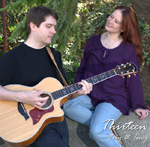
 IS FILK ON THE ITINERARY OF GENRE/INDUSTRY CONVENTIONS, FAN CLUB MEETINGS, WRITER WORKSHOPS, ETC, OR IS IT MORE INFORMAL?
IS FILK ON THE ITINERARY OF GENRE/INDUSTRY CONVENTIONS, FAN CLUB MEETINGS, WRITER WORKSHOPS, ETC, OR IS IT MORE INFORMAL?
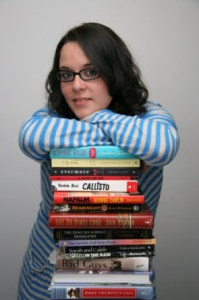
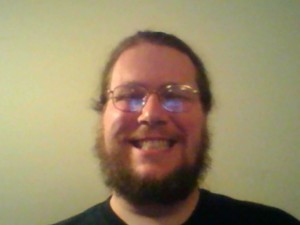
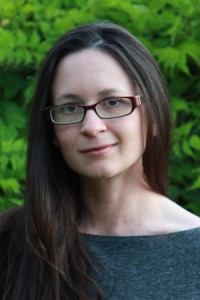
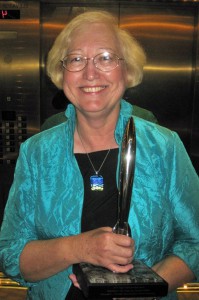
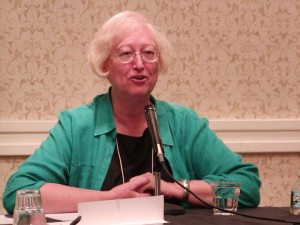 CARL: One of your trademarks is integrating extensive research into your stories. Which topics had you already researched before deciding to write a story about it and which ones did you research specifically for a story?
CARL: One of your trademarks is integrating extensive research into your stories. Which topics had you already researched before deciding to write a story about it and which ones did you research specifically for a story?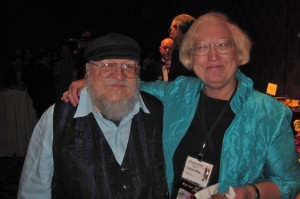 CS: If you’re not already an expert on a topic, how much research time do you typically invest in a story?
CS: If you’re not already an expert on a topic, how much research time do you typically invest in a story?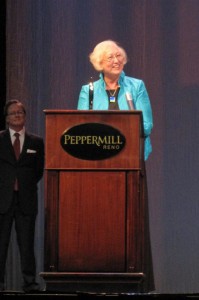 CS: Do you still get rejection letters? Do you still have editors try to tinker with your story? Or is there a stage where an author becomes immune to all that?
CS: Do you still get rejection letters? Do you still have editors try to tinker with your story? Or is there a stage where an author becomes immune to all that?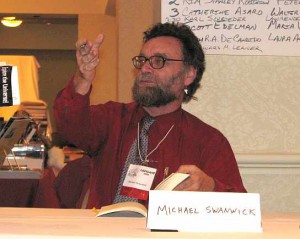
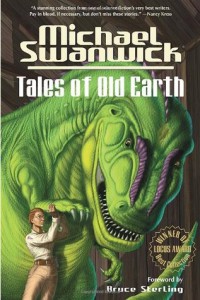 Is there such a thing as style rules (see below) or is that conventional wisdom / dogmatism? Shouldn’t the story determine the style rather than vice versa? “Yeah, but famous author X breaks the rules all the time and the editors don’t challenge him on it.”
Is there such a thing as style rules (see below) or is that conventional wisdom / dogmatism? Shouldn’t the story determine the style rather than vice versa? “Yeah, but famous author X breaks the rules all the time and the editors don’t challenge him on it.”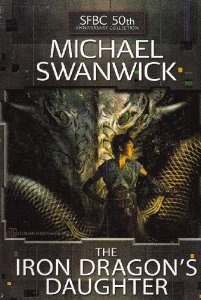 and developing characters and reinforcing themes?
and developing characters and reinforcing themes?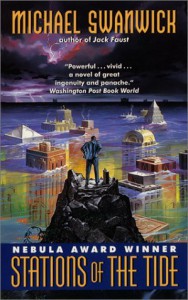
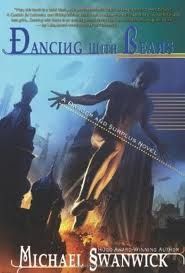 To ebook or not to ebook, that is the question.
To ebook or not to ebook, that is the question.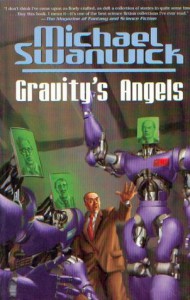 True or false: The system is rigged against the rookie and in favor of the veteran.
True or false: The system is rigged against the rookie and in favor of the veteran.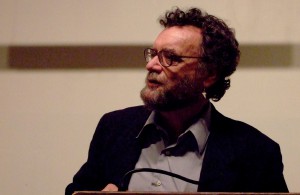 You described Gardner Dozois as a manuscript doctor genius. What exactly did he do to fix a manuscript?
You described Gardner Dozois as a manuscript doctor genius. What exactly did he do to fix a manuscript?
 Prolific Science Fiction-Detective-Humor writer Richard Zwicker has sold thirty stories to twenty-two markets in five and a half years. That’s a sale about every two months. How does he do it?
Prolific Science Fiction-Detective-Humor writer Richard Zwicker has sold thirty stories to twenty-two markets in five and a half years. That’s a sale about every two months. How does he do it?